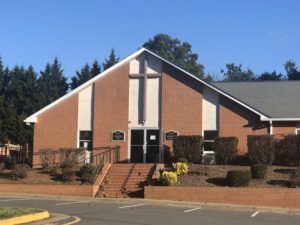Can a Church Get an SBA Loan?
Yes, churches can now (temporarily) receive Small Business Administration (SBA) loans, regardless of whether they provide secular social services. This has become more of an issue in 2020 as churches have pursued PPP loans (Paycheck Protection Program) and EIDL loans (Economic Injury Disaster Loans). Churches are eligible for both of these loan programs. This is different from past SBA loans, in which faith-based organizations were legally barred from receiving standard SBA loans. There has been much legal discussion about this, and arguing on both sides of the issue, but the law for PPP and EIDL loans as it is written says that although religious organizations typically cannot receive small business loans, the SBA would “decline to enforce those subsections” in regards to COVID relief.

To apply for a PPP loan or an EIDL loan, a church needs to go through the same processes that a for-profit business would, and the terms will be the same. The PPP and EIDL loans programs are neutral in regards to whether the non-profits they fund are secular or religious.
How Much Collateral is Needed for an SBA Loan?
Do SBA loans require collateral? The answer is generally yes. Loans secured by the SBA want to minimize risk and often the borrower is asked to offer collateral to cover the cost of the loan. This is standard for SBA 7(a) loans greater than $350,000, in which lenders want to receive as much collateral as possible.
For SBA 7(a) loans ranging from $25,000 to $350,000, lenders follow the same procedures that they’ve laid out for non-SBA commercial loans. The lender takes a lien on the borrower’s fixed assets, including real estate. Loans below $25,000 typically don’t require collateral.
For loans that require collateral, an appraiser will value the assets you’re pledging to secure the loan. This appraiser is hired by your lender. The lender then discounts the appraised value of the assets based on their policies. For example, real estate collateral is discounted 80%. The reason for the discount is because, in the event the lender must seize the collateral and sell it, they will generally be selling it for less than market value (because they’ll be selling it on short notice to recoup their funds).
While collateral in business often includes things like inventory, machinery and equipment, and accounts receivable, a non-profit church typically doesn’t have these things, and their collateral is almost always tied to real estate and possibly vehicles. Investments can also be collateral, if a church has such.
Loan to Value Ratio
Loan to Value Ratio (LTV) refers to the total loan amount and how that compares with the collateral that secures the loan. The higher the LTV, the riskier the loan is for the lender. A lender generally wants the LTV to be 80% or less. The lower the LTV, the lower your interest rate will be.
How Much of a Down Payment Do I Need for an SBA Loan?
The Small Business Administration has mandated a minimum of 10% down on all SBA loans. However, as SBA loans are run through private lenders not through the SBA itself, the lender will typically require an additional down payment on top of that 10%. Also SBA 7(a) loans require 15% for startups or businesses that need funding for mergers or acquisitions.
SBA 504 Loans
An SBA 504 loan, which is eligible for real estate purchases, is designed to give the owner as much cash on hand as possible. These loans are typically funded with 50% of the money coming from the lender, 40% from an SBA-approved Certified Development Agency (a nonprofit group that supports economic activity with loans) and 10% comes from the borrower.
All of this is flexible. For a company that has been functioning for less than two years, this amount may be 15%, and if the loan amount is high, the down payment may be 20% or more.
What is the Maximum SBA Loan for a Church?
PPP Loans
The Paycheck Protection Program loans are available to nonprofits and churches under certain circumstances. These loans do not require any fee or collateral.
To be eligible you must:
Be in operation on Feb 15, 2020
Be a small business or a 501(c)(3)
Have fewer than 500 employees
The amount of the loan is 250% of the applicants average payroll prior to obtaining the loan, calculated in the 12 months prior to receiving the loan. Loans are capped at $10,000,000 (which is up from a previous SBA cap of $350,000).
Interest rates are capped at 4%, and the maximum repayment period is 10 years.
EIDL Loans
EIDL loans, unlike the PPP loans, are made directly from the SBA. The maximum loan size is $2,000,000. Applicants can apply for an emergency request of an advance of $10,000, which will be distributed in 3 days. Applicants are not required to repay this advance, even if they are denied the EIDL.
A personal guarantee is required for loans greater than $200,000.
